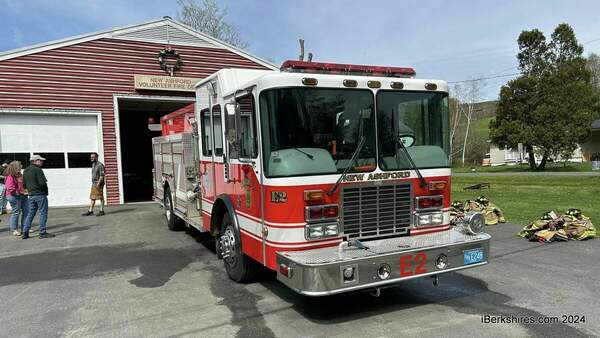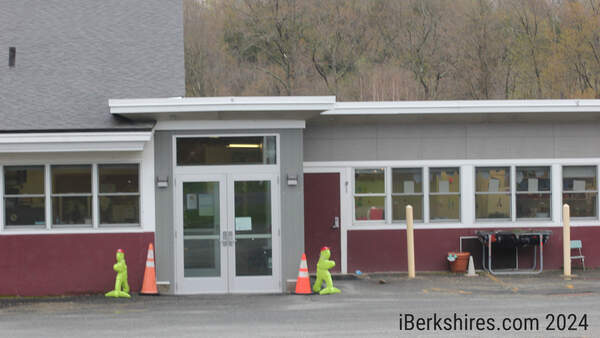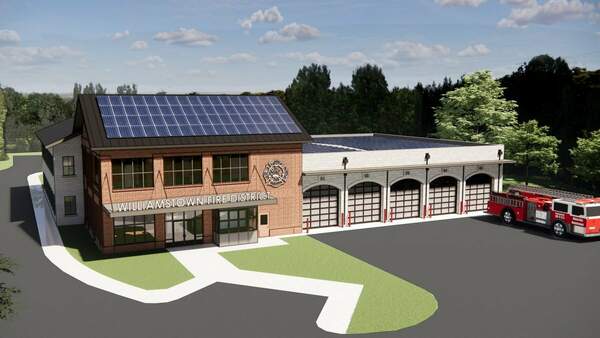Letters: Hospital Changes Will Meet Community Needs
 |
Though there are changes happening at North Adams Regional Hospital one thing remains the same – the patients we care for today are the patients we will care for tomorrow. The way we provide that care may change and new partners may support us in that effort – but our commitment to quality care for our community remains constant.
There is no doubt that there is enormous pressure to reduce costs, operate efficiently and create partnerships. But at North Adams Regional Hospital, we are focused on meeting the needs of our local residents that can only be provided by a community hospital. We recently announced several planned changes in the way we operate and while we recognize that change is always difficult, we believe these shifts will actually improve the care we provide and better align it with the way the community uses our hospital.
Today, the number of inpatients we see each day averages between 14 and 18 people. Those patients don't typically need intensive care, but they do need monitoring for health-related issues, support for respiratory issues, assistance after surgery and other baseline services. Unfortunately, the way the hospital is structured, that care is provided in two different places, making it difficult to be flexible in response to patient care needs.
Starting next year, we will create a new inpatient unit that includes 16 private-room beds and provides cardiac monitoring, care for medical/surgical patients who can't immediately be discharged and care for emergency room patients who need longer supervision or more intense monitoring. Based on an analysis of our inpatients over the past several years, most of our inpatient volume comes from patients facing congestive heart failure, chronic obstructive pulmonary disease and pneumonia, all of which require intensive cardiac monitoring. By creating this new unit, we can care for those patients in a safe, effective way, while also providing for patients that need other inpatient services.
From a patient perspective, the inpatient services we provide haven't changed. But, what is critical about the new unit is that the model of how we provide the care is changing – to be safer and higher quality. By creating a new unit, we can do several important things: cross train our nurses to assure that all are able to provide cardiac monitoring, and put in place a patient to nurse ratio of 4 to 1. Both reflect best practices for patients requiring heart monitoring and the other issues we typically see. We will also support the clinical staff with unit secretaries, nursing assistants, a critical care RN and new monitoring technicians.
Though more difficult, equally beneficial to our community are the planned changes to our behavioral health services. Our daily inpatient census for mental health beds is about seven patients per day – though we have to staff the unit for 11 patients. As a region, we actually have the capacity to serve the vast majority of inpatient/emergency behavioral health needs of our local residents more effectively via a coordinated approach that includes Berkshire Medical Center and The Brien Center, which provides outpatient care. By providing behavioral health services in a regionwide and coordinated manner, NARH can use the resources to provide psychiatric support to our community's primary care and pediatric offices, do more timely emergency assessments in the hospital itself and offer community-based screening and support programs.
Given the changes in health care today, community hospitals in rural locations like NARH have to look at the care we provide differently – and from a more regional perspective. By focusing on what is most important to offer in the community setting, we can create a sustainable model that works in coordination with regional providers. More importantly, we can focus on safely providing for the needs of our patients.
For example, our pediatric inpatient beds see less than one patient a week – most pediatric hospitalizations require more serious support than we can offer. Therefore, it makes sense to focus on assuring that we can meet the emergency care needs of our youngest patients and work in coordination with BMC on other pediatric inpatient services.
We are committed to making these changes in a way that best uses our limited financial resources to focus on patient care, safety, staff support and training. Thank you to our community for your continued support.
Leesa-Lee Keith, a registered nurse, is chief nursing officer at North Adams Regional Hospital.
Tags: letters to the editor, NARH, nursing,















